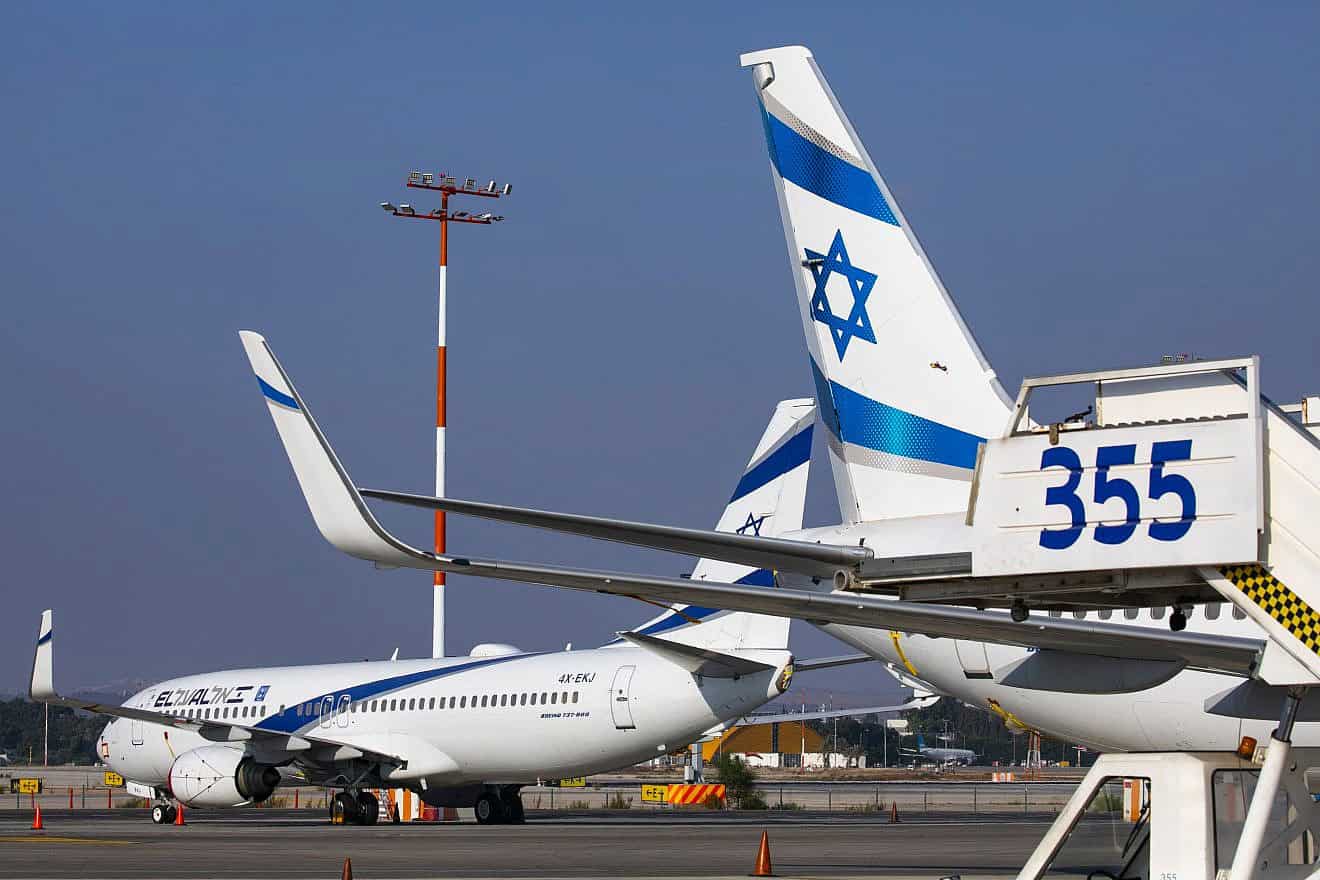Israel’s main international airport was up and running Wednesday after briefly being closed Tuesday night during a massive Iranian missile attack as airlines scrambled to divert flights throughout the region.
The speedy reopening of Ben-Gurion International Airport outside of Tel Aviv, less than an hour after Iran fired 181 ballistic missiles at Israel, came on the eve of the Jewish New Year holiday of Rosh Hashanah as tens of thousands of Israelis vacationing abroad were scrambling to get home for the holidays after earlier foreign airline cancellations.
Nearly 35,000 passengers are expected to pass through the airport on Wednesday, on about 200 flights, including 20,000 arriving in Israel and some 15,000 departing, an Israel Airport Authority (IAA) spokeswoman told JNS.
A day earlier, about 54,000 passengers, on more than 310 flights, went through the airport, a decrease of 30 percent compared to last year before the start of the Gaza war, IAA said.
Before Iran’s attack, only about 20 airlines were operating to and from the Tel Aviv area airport, down from over 80 at the same time last year, the IAA spokeswoman said.
Israel’s flagship carrier El Al, which is under investigation on charges of price gouging, has emerged as a virtual monopoly on flights to and from Israel during the year-old war. During this period, it has held a 70% to 85% market share in cities where it’s flown since Oct. 7, a number which has mushroomed further over the last couple of months with the escalation of tensions with Hezbollah in Lebanon.
The carriers with the most flights to and from Tel Aviv after El Al over the last several months—with significantly fewer flights than the national airline—have been two smaller Israeli carriers, Israir and Arika.
During the Iranian attack, flights to Israel, including on Israeli carriers, were rerouted in midair, with some landing in nearby Cyprus, or others delayed for hours. Nearby airports including Jordan were also briefly shuttered.
The latest travel disruptions come at a turbulent time for the Israeli aviation industry amid nearly a year of war, with many foreign carriers, including all three U.S. legacy airlines, still not flying to and from Tel Aviv. Many major European carriers that had resumed flights halted service anew this month due to the security situation in the north.
Earlier this month, the European Commission and the European Union Aviation Safety Agency recommended airlines not fly to Israel and Lebanon through the end of October. This prompted a new wave of airline cancellations ahead of the Jewish High Holidays, in a move criticized as politically-motivated by Israeli aviation officials but likely to remain in force due to the Tuesday night Iranian attack.
The rare directive prompted major European carriers, including the Lufthansa Group and KLM, as well as Virgin Atlantic which had just resumed service to Tel Aviv, to further suspend service to Israel.
Moreover, several of the 20 airlines that were still operating flights to Israel on Tuesday, including Flydubai and Ethiopian Airlines, also temporarily suspended service on Wednesday. Passengers were advised to check with their airline before coming to the airport, and be advised that their return flights might get cancelled.
In addition to the Israeli carriers, the major airlines that have been flying to Israel include Etihad Airways, Ethiopian Airlines, Chinese Hainan Airlines, Georgian Airlines, Uzbekistan Airlines and Flydubai, IAA said.
Notably, the two carriers from the United Arab Emirates, a Gulf country that made peace with Israel as part of the landmark 2020 Abraham Accords, continued to service Tel Aviv throughout most of the last year at a time when U.S. airlines repeatedly stopped service to Israel.

























